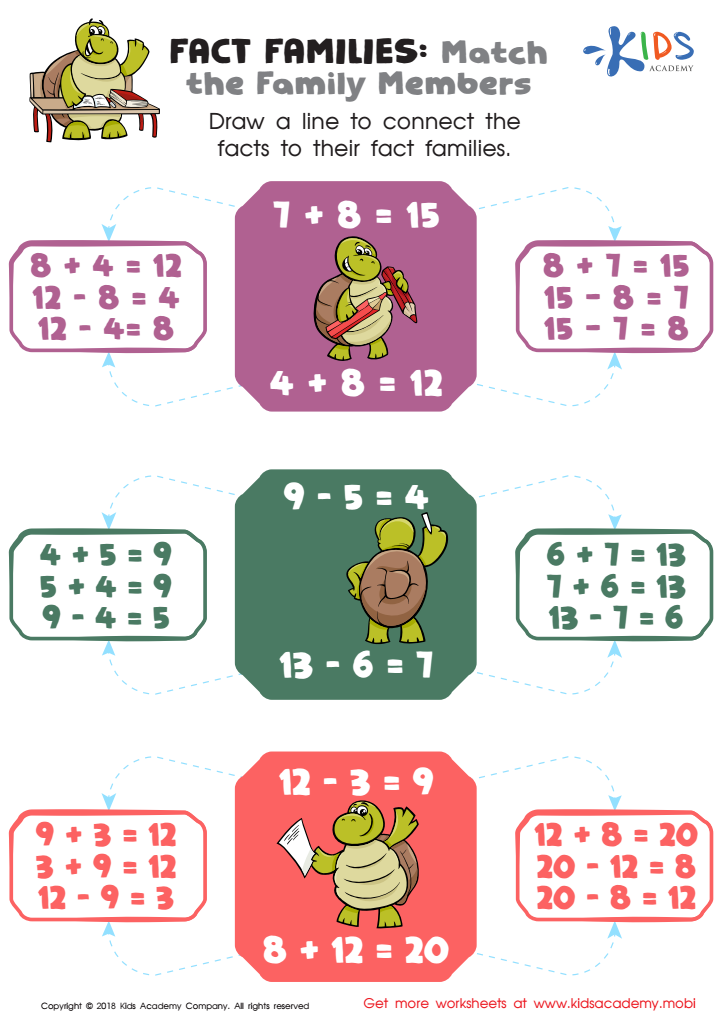Improve problem-solving skills Addition Worksheets for Ages 6-8
5 filtered results
-
From - To
Enhance your child's problem-solving skills with our engaging Addition Worksheets designed specifically for ages 6-8. These worksheets provide a fun, interactive way for young learners to practice and master addition concepts while developing critical thinking abilities. Each activity encourages children to think independently, approach problems creatively, and apply their knowledge to real-world scenarios. With colorful illustrations and varying difficulty levels, these worksheets keep students motivated and excited about math. Ideal for classroom or home learning, our resources nurture confident problem solvers who enjoy tackling challenges. Help your child build a strong foundation in math today!


Fact Families: Match Family Members Worksheet
Improving problem-solving skills in math, particularly addition, for children ages 6-8 is crucial for several reasons. At this developmental stage, children are building foundational skills that will support their academic and everyday life challenges. Effective problem-solving skills in addition help students to not only perform calculations but to understand and manipulate numbers, fostering a deeper comprehension of mathematical concepts.
When parents and teachers emphasize these skills, children learn how to approach issues systematically, breaking them into smaller, manageable parts. This reflects critical thinking valuable far beyond the math classroom, aiding in areas such as science, reading comprehension, and social interactions. Moreover, strong problem-solving abilities promote perseverance, as children learn to tackle difficult problems without giving up, nurturing resilience.
Engaging in activities that enhance problem-solving can also make learning fun and interactive, which is essential for maintaining children's motivation and enthusiasm for math. When parents and teachers collaborate in this endeavor, they create a supportive environment, encouraging children to explore different strategies and to voice their thought processes. This not only reinforces self-confidence in math but also develops a growth mindset, preparing them for future educational challenges.



 Assign to My Students
Assign to My Students






















